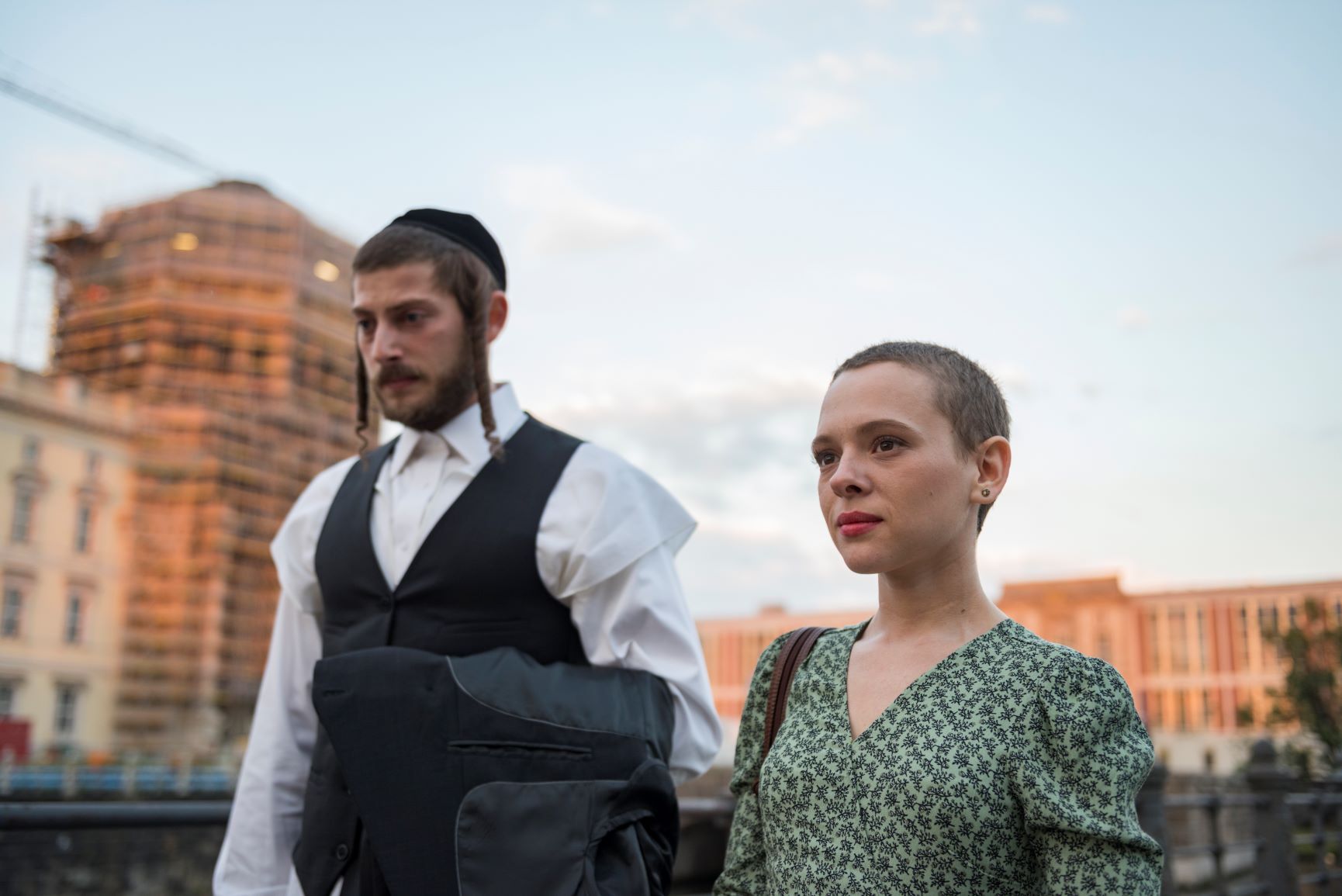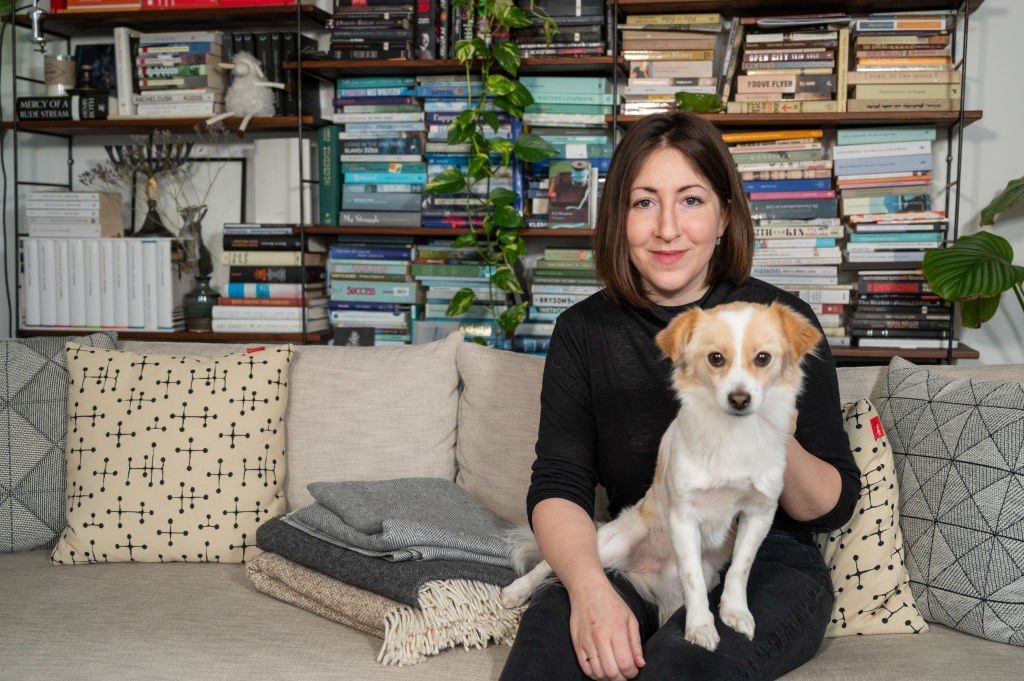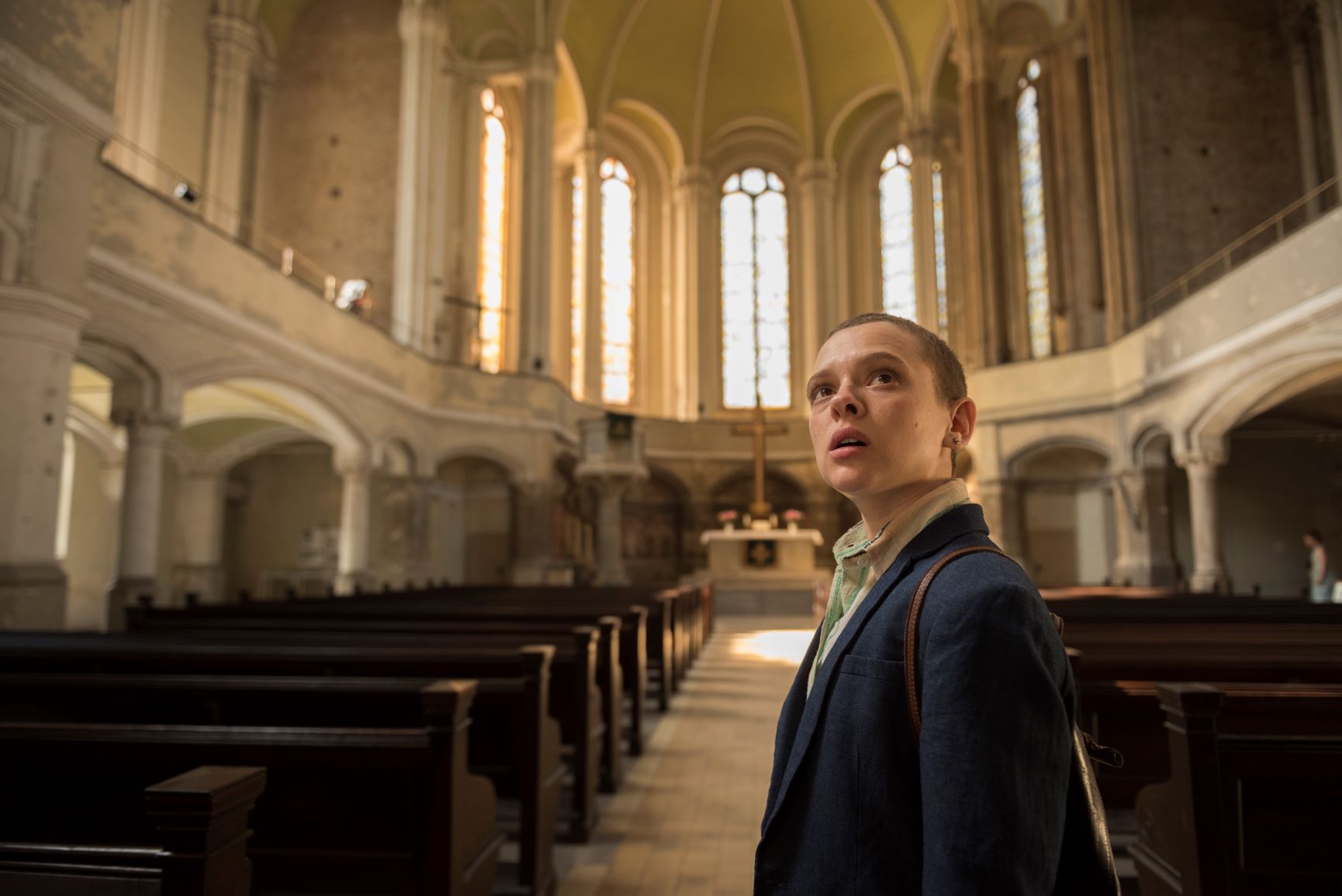Why ‘Unorthodox’ on Netflix Should Be the Next Series You Binge
Unorthodox is a new drama miniseries about a young woman who finds a new life in Berlin, Germany. The protagonist Esty, played by Israeli actress Shira Haas, grows up in a Hasidic Jewish community. Esty’s life in the ultra-Orthodox Brooklyn neighborhood is based on a 2012 memoir. Deborah Feldman wrote Unorthodox: The Scandalous Rejection of My Hasidic Roots, and two producers recently produced it as a limited series for Netflix. The entire series is well worth your time.
‘Unorthodox’ premiered on Netlix in March 2020

Forbes writer Sheena Scott recently wrote that Unorthodox is nearly impossible to not watch all in one sitting.
It’s entirely compelling, completely addicting–and totally consumable: it’s only four episodes long.
“I would advise you to have four hours ahead of you free when you start this series, as you won’t be able to stop watching this spellbinding moving story of a young woman seeking her own sense of self,” Scott wrote.
But one thing that stood out to the critic was the attention to specifics. She said:
It is … these flashbacks that make the series stand out (besides, of course, it’s moving story). The show offers a look into this very closed-off community, revealing its traditions with great detail. The sequences of Esty’s wedding are particularly interesting, showing the choreographed moves, that have been repeated generation after generation, of the ceremony.
Netflix limited series creators paid attention to detail
The creators of Unorthodox said they put in the work to get those details right. Part of that came from the hiring process.
“We knew it was so important to get people on board not just as actors but behind and in front of the camera who are from this community,” co-creator Alexa Karolinski said in Making Unorthodox. The series hired on Eli Rosen, for example.. He is an “actor, translator, and … specialist when it comes to Yiddish.” The other executive producer, Anna Winger, even called Rosen the series’ “spirit guide.” They also hired Deborah Feldman, author of the memoir Unorthodox, as a series consultant.

Winger also told Variety about that it was a distinct goal to hire Jewish professionals behind the camera–and in front of it.
The Unorthodox co-creator shared with the publication:
We made a decision that we would only cast Jewish actors in Jewish roles, in part because of the language. We wanted people who either spoke Yiddish or had a familiarity with it, had a feeling for the language. If your grandparents spoke it, then you have a feeling for it.
And their efforts seemed to have paid off.
“I think this is the first show ever to accurately portray the Hasidic community,” Unorthodox cast member Michal Birnbaum said in Making Unorthodox. Birbaum was also raised a Hasidic Jewish community.
Actress Shira Haas did a lot of research for the role of Esty
Actress Shira Haas told IndieWire that the language was a huge part of her intense research for the lead role in Unorthodox. Haas spoke some Yiddish, but not the particular “dialect spoken in Williamsburg.”
“I went to sleep with Yiddish and I woke up with Yiddish,” Haas said. She recorded Rosen, her Yiddish consultant, and watched videos.
“It was so important to me to know my lines well and to know what I was saying, so that when I came to set I wouldn’t have to think about it, so I would be able to actually be in the scene,” she continued. But aside from the language, Haas also had to do a lot of cultural research to fulfill the role properly. She explained:

It did require me to do a lot of research, which included, of course, reading the book a few times, but also the internet and seeing a lot of interviews and lectures and reading about the rituals, which are very different.
But the most satisfying part of Unorthodox is the shocking, beautifully-told emotional journey of Esty Shapiro.
“This is a story about a woman trying to find herself, and part of the series is also finding yourself as a woman,” Haas told IndieWire.


